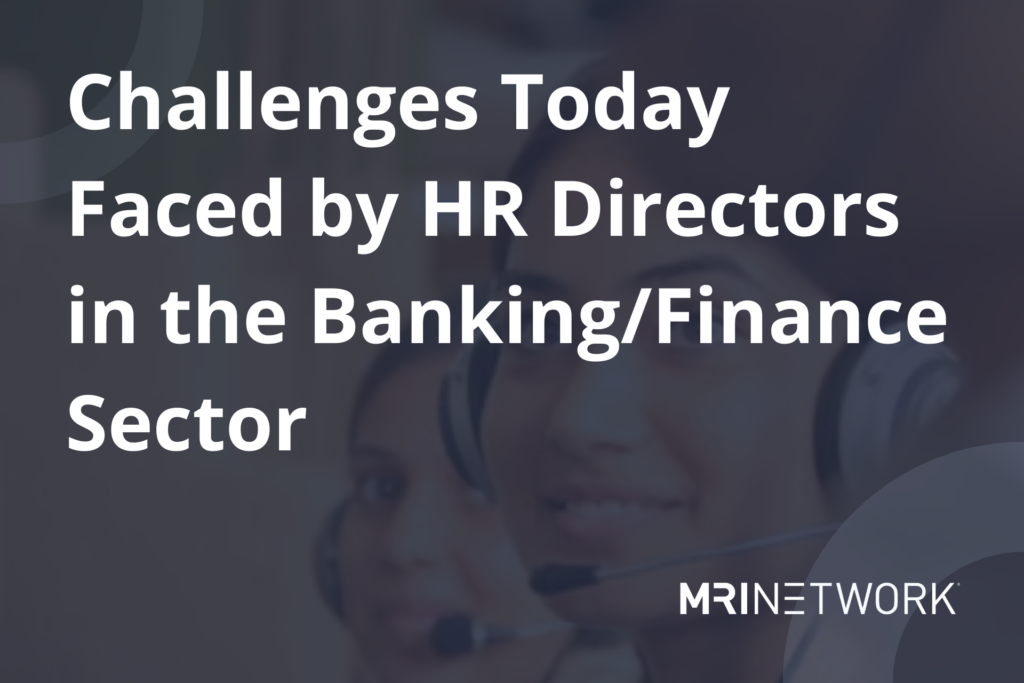The banking and finance industry is undergoing seismic shifts in how it engages with customers. Where traditional branches and products once held importance, digital services and personalized experiences are now table stakes for staying competitive. Customers have more choices than ever and higher expectations of service. Those institutions that view customers as dollars and depersonalize interactions will find it hard to thrive in this new landscape.
However, an emerging best practice of a customer-centric approach promises to sustain banks and help them grow. Putting the customer at the center of all strategic and operational decisions fosters loyalty that drives long-term value.
Read on as we tell you more about the customer-centric approach and how it impacts the banking and finance industry.
The Future of Hiring in the Banking/Finance Industry
The banking and finance sectors are rapidly evolving due to technology, disruption, and advancements. As these industries transform at an unprecedented pace, the jobs of the future and needed skills will also change dramatically. The following trends will heavily impact hiring in banking and finance over the coming years:
Shift Towards Digital Competencies
As banking and financial services continue to digitize, hiring in these industries will heavily emphasize digital skills. Candidates will need expertise in data analytics, cybersecurity, UX design, and developing digital products/services. Traditional financial roles will still exist, but becoming technologically proficient will be a baseline qualification. Employers will screen candidates not just on their banking knowledge but also their digital competence.
Remote Work and Flexible Work Arrangements
The pandemic has proven that many finance jobs can effectively be done remotely. This will reshape how and where hiring is done. Companies will consider a much larger, global talent pool when filling roles. They’ll also offer more flexible arrangements to attract and retain talent. Candidates can expect more permanent remote or hybrid positions alongside flexible schedules. This evolution helps both employers and employees adapt to changing needs.
Technological Disruption and Automation
While some roles will be displaced, new technology also creates opportunities. Hiring will focus on roles less vulnerable to automation, like those involving complex problem-solving, creative thinking, and emotional intelligence. Candidates with skills in emerging tech like AI, blockchain, and machine learning will be in high demand.
Challenges Faced by HR Directors in the Banking/Finance Sector
The banking and finance sector operates in a rapidly changing landscape shaped by evolving technology, stringent regulations, skills gaps and diverse workforces. For HR directors in this industry, success requires effectively navigating a maze of critical people challenges.
- Skills Gap and Talent Shortage: Finding and retaining talent with experience in financial analysis, risk management, and digital technology is increasingly difficult. The required skillsets are changing rapidly, and candidates may demand higher compensation packages.
- Regulatory and Compliance Concerns: Ensuring adherence to complex and ever-evolving regulations regarding money laundering, market manipulation, and data privacy is a full-time job. Directors must keep their employees sufficiently trained.
- Diversity and Inclusion Imperative: Achieving diversity targets across gender, ethnicity, background, and other attributes requires recruiting from untapped talent pools and fostering an inclusive culture.
- Employee Well-being and Work-Life Balance: Long hours and high-stress levels contribute to Burnout in banking roles. Directors aim to implement flexible policies and wellness programs to support mental health and integrate work with personal lives. Addressing these challenges is key to the sector’s long-term success.
Fostering a Customer-Centric Approach through HR Initiatives
While challenges will always exist in business, facing them head-on with the right approach can turn obstacles into opportunities. Here are some ways a customer-centric approach through HR initiative helps solve these challenges in the banking and finance sector.
Prioritizing Culture During Recruitment
At the core of any banking business is creating value for customers. To be a customer-centric organization, this mantra must be ingrained in every employee at every level. HR plays a vital role in cultivating a culture where meeting customer needs are prioritized above all else. Recruiting for emotional intelligence and empathy for clients sets the right tone. Hiring those naturally passionate about understanding diverse financial situations helps build trust.
Continuous Learning and Development
A learning culture where feedback is openly shared, and new skills rapidly adopted ensures staff can address any customer concern confidently. As Nancy Halverson – the SVP of franchise engagement and operations for MRINetwork says; “Career pathing has great potential as a marketing and branding tool to attract future top talent.” Cross-training builds versatile teams to test innovative products and serve evolving needs.
Aligning Metrics and Incentives
Performance metrics and incentives should reward customer-centric behavior. Tracking customer satisfaction, retention, and feedback helps identify strengths and areas for improvement at the individual employee level. Recognizing top performers who demonstrate excellent service sets an example for others to provide highly personalized customer experiences.
Focusing on Customers: The Key to Future Success in Banking and Finance
A customer-centric approach requires changes across all aspects of operations, from product design to communications to service. But making this transition will futureproof banking and finance companies and help them stay relevant as consumer demands and expectations evolve rapidly.
Follow MRINetwork to learn more about the customer-centric approach topic.
